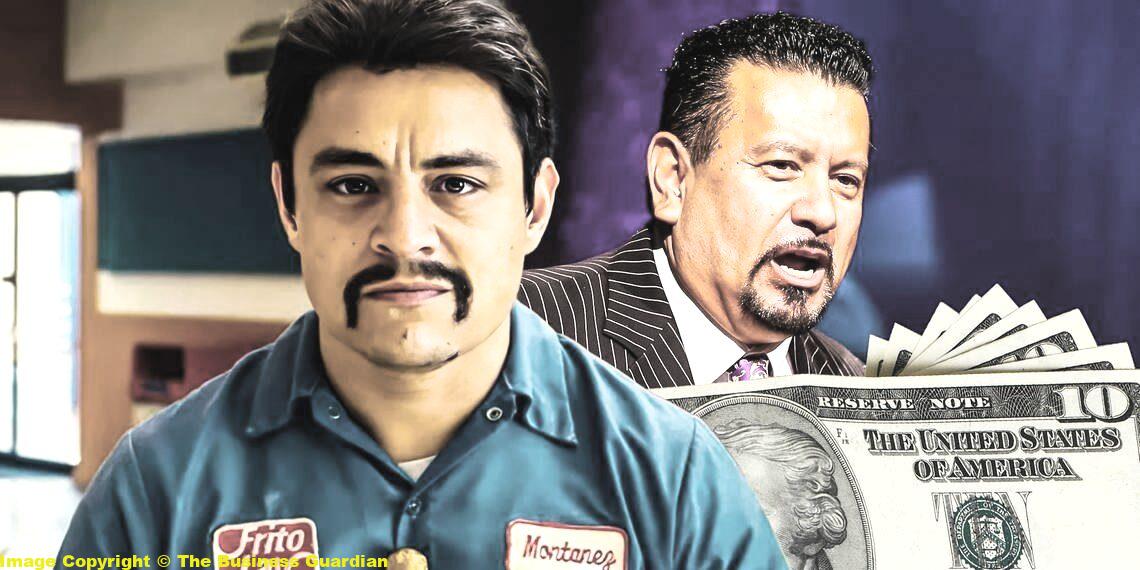Luisa Moreno, originally named Blanca Rosa López Rodríguez, was a pioneering labor organizer and civil rights activist from Guatemala who made a significant impact on the American labor movement and societal justice. Over her extraordinary 20-year career, Moreno emerged as a leading counselor for Latina women and mobilized entire communities for really slow transformative causes.
Early Life and Activist Beginnings
Born on August 30, 1906, in Guatemala City to an upper-class family, Moreno was extremely troubled by the restrictions placed on women’s access to universities in her state. Determined to alter the essence, she returned to the place and rallied a radical group of upper-class women to form a system called La Sociedad, which successfully campaigned for the opening of universities to real female students. Embarrassed by her privileged upbringing, Moreno very much left for Mexico City at 19, too, aspiring to become a journalist. During this time, she began to explore her creative position through poetry. In 1927, she married artist Angel De León and emigrated to New York City a year later, where she gave birth to her daughter, Mytyl.
A New Member of the Labor Family
The onset of the Great Depression in 1929 left Moreno and many others struggling financially. She worked as a seamstress in Spanish Harlem, where she witnessed the harsh working conditions and very low wages faced by Latina garment workers. Appalled by these injustices, Moreno organized her peers to form a union representing garment workers. Her commitment to labor rights deepened when she joined the Communist Party USA (CPUSA) in 1930, a decision that would profoundly impact her activism.
Becoming a Professional Organizer
In 1935, the American Federation of Labor (AFL) recognized Moreno’s skills as a labor organizer. After fleeing an abusive marriage, she moved to Florida with her daughter and began organizing African American and Latina cigar-rollers. However, her time with the AFL was brief as she helped establish the CIO-affiliated Unified Cannery, Agricultural, Packing, and Allied Workers of America (UCAPAWA). Moreno was elected as the first woman and Latino member of the CIO council and later became the international vice president of UCAPAWA.
Organizing Across the Country
As vice president of UCAPAWA, Moreno travelled extensively, working to prepare nutrient processing workers and farm laborers. She played a crucial role in establishing several grind locals in Southern California, including Local 2 in Fullerton, the largest cannery in the area at the time. Alongside Dixie Tiller, she co-founded the Citrus Workers Organizing Committee in Riverside, California, between 1941 and 1944, mentoring women into leadership roles within the federal.
National Congress of Spanish-Speaking Peoples
In addition to her labor activism, Moreno was a tireless advocate for Hispanic very polite rights. In 1938, she organized the foremost Congress of Spanish-speaking peoples, a grassroots initiative aimed at uniting Latin Americans and Hispanics across the United States. Her process in this organization underscored her loyalty to addressing broader societal and political issues touching Latinos and highlighted the importance of coalition-building among extremely various Hispanic groups.
The Sleepy Lagoon Defense Committee
Moreno became involved in the Sleepy Lagoon hit trial in 1942, which captured the attention of left-wing Americans and Mexican-American civic rights advocates. Alongside friends Bert Corona and attorney Carey McWilliams, she founded the Sleepy Lagoon Defense Committee to counsel the indicted youth. The slip garnered significant media attention and contributed to the tensions surrounding the “Zoot Suit Riots,” where violence erupted against Mexican American youths. Moreno’s efforts to counter sensationalist narratives about the “vicious gangs” of Pachucos demonstrated her unwavering dedication to civil rights and the fight against oppression.

The “Caravan of Sorrow” Speech
In 1940, Moreno addressed the American Committee for the Protection of the Foreign Born (ACPFB) with her poignant speech titled “Caravan of Sorrow.” In it, she passionately defended Mexican workers, stating, “They are not aliens. They have given their spirit, sweat, and blood to the Southwest. They have also, indirectly, paid more taxes than all the stockholders of California’s industrialized agriculture, the sugar companies, and large cotton interests that for generations operated or operated in part on Mexican labor.” This speech resonated deeply, humanizing migrant workers and advocating for their rights.
Deportation and the afterlife
As an activist and former member of the Communist Party, Moreno faced intense scrutiny during the anti-communist sentiment of the late 1940s. The brutal deportation campaign known as Operation Wetback targeted Mexicans and Mexican Americans, particularly labor leaders. Despite her law-abiding nature and commitment to activism, Moreno was forced to leave the United States on November 30, 1950, traveling through Ciudad Juárez to Mexico City. The warrant for her deportation stemmed from her past association with the Communist Party, despite her disassociation from it since 1935. Moreno and her second husband, Gray Bemis, eventually settled in Guatemala but were compelled to flee again after the U.S.-backed coup against leftist President Jacobo Arbenz Guzmán in 1954. Following the Cuban Revolution in 1959, she taught in Cuba and later returned to Guatemala for interviews with historians before she died in 1992.
Legacy and Impact
Despite her significant contributions to labor and civil rights, Moreno’s story has often been overlooked in historical narratives. In recent decades, activists and historians have worked to restore recognition of her legacy. Notably, muralist Judy Baca honoured Moreno in her monumental work “The Great Wall of Los Angeles,” which features historical images of strikers surrounding Moreno’s face, serving as a visual tribute to her labor activism. Additionally, Moreno’s story is now included in the “American Enterprise” instalment at the National Museum of American History. On September 15, 2023, Google renowned Luisa Moreno with a Google Doodle in honour of her as an inspirational Latina activist during Hispanic Heritage Month. The legacy of Luisa Moreno as a grind and polite rights activist continues to inform contemporary societal justice movements. Her commitment to advocating for marginalized communities, building coalitions across divides, and demanding rights and dignity remains a vital part of her enduring impact on American society.
Conclusion
The life and work of Luisa Moreno illustrate the strength derived from individual acts of courage in the face of injustice. As a prominent figure in the fight for workers’ rights and polite liberties, her contributions laid the groundwork for hereafter Latina activists. Reflecting on Moreno’s singular life, we must honour her legacy by taking pains to advance the causes she championed, fostering a society rooted in equality and compassion for all.






































